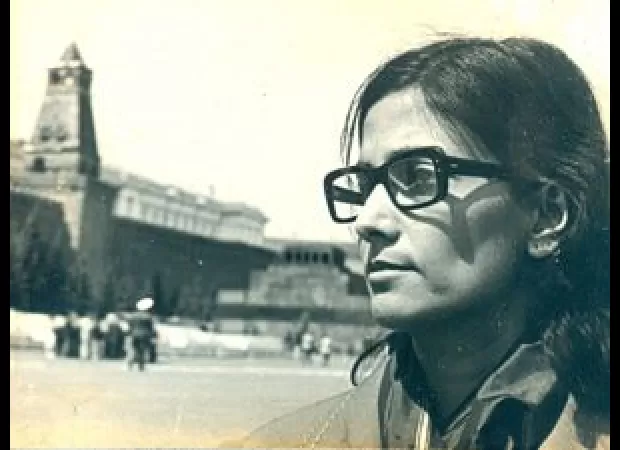An ongoing battle between opposing beliefs, values, and practices that have created deep divisions within a society.
Nandini Satpathy, the influential Minister of State for Information & Broadcasting, played a crucial role in the 1971 Bangladesh Liberation War, a cultural clash between East and West Pakistan.

Nandini Satpathy, the remarkable Minister of State for Information & Broadcasting in Indira Gandhi's government, played an integral role during the 1971 Bangladesh Liberation War. This war was not just a conflict between East and West Pakistan, but a deeper clash of cultures. On one side were the meat-eating Punjabi Pathans of the Northwest, and on the other were the East Indian Muslims and Hindus. These groups were bonded by their shared struggles with natural disasters and their humble diets of fish and rice.
The 1971 war marked a significant turning point for the Bangla nationalist spirit. As the country discovered its depth and strength, a cultural renaissance took place. In the midst of this tumultuous period, Nandini Satpathy took it upon herself to help set up the Swadhin Bangla Betar Kendra. This radio station played a crucial role in the war, as it was not only fought on the frontlines but also through the powerful medium of radio waves. Programs like Agnishiksha, Jagarani, Rakta Shaskhar, and Chorom Potro, all hosted by MR Akhtar, broadcasted nationalist sentiments and galvanized civil society. They also aided the Mukti Bahini, the liberation front that was under-equipped for the fight.
Nandini Satpathy's strategic use of media played a crucial role in shaping international opinion about the atrocities committed by the Pakistani army. Even though there were criticisms from some, such as the Washington Post's Lee Lescaze, who accused the Indian press of influencing global views through the Free Bangla Radio, the media's account was inseparable from the events. It created new sentiments of nationalism and the idea of the Mukti Bahini, which were given by the philosophers and poets of the day.
The cultural lines along which Bangladesh was liberated continue to resonate deeply with many, including Lubna Marium, the artistic director at Shadhona in Dhaka. She believes that, except for Delhi and Kolkata, the rest of India does not truly understand what Bangladesh stands for. Despite this, the country's spiritual heritage, with its bauls, boyatis, and snake cults, has persisted. However, there is a growing concern about regressive ideas creeping in, with some parents questioning traditional practices. Lubna Marium says, "In Bangladesh, we used to never even consider someone's religion. Unfortunately, that is now changing."
Nandini Satpathy's warnings about the dangers of extremism are even more relevant today. Her efforts to protect minorities and foster a secular, inclusive Bangladesh are reminders of the vigilance needed to preserve these values. She fought for the freedoms that were torn apart during the 1971 war and helped to stitch them back together. Her legacy continued as she translated Taslima Nasreen's Lajja into Oriya, shedding light on the struggles of minorities in a rapidly changing Bangladesh. Nasreen's Lajja depicts the plight of a Hindu family in post-1992 Bangladesh, mirroring the persecution that Satpathy had fought against decades earlier.
Nandini Satpathy, who was India's I&B minister and a close friend of Indira Gandhi, crossed borders to help the Mukti Bahini with arms, money, and to ensure that a nation came together in both letter and spirit. Today, her dismay at the rise of radicalism and the decline of the youth taking over a nation is more relevant than ever. In 2013, she was posthumously honored with the title "Friends of Liberation War Honour" along with 69 international allies for their contributions to the 1971 Liberation War. Quazi Sazzad Ali Zahir, a veteran of the Bangladesh Liberation War, says, "I wish more people in India knew about the contributions she made to our freedom struggle and to the development of the identity of a culture different from the one it freed away from." The Bangladesh government awarded him the Bir Protik gallantry award, and he received a Padma Shri from the Indian government at the 50th anniversary of the war.
As we fast forward to August 2024, Bangladesh finds itself facing another crisis. The vandalization of Bangabandhu's statue symbolizes the ongoing tensions and the rising tide of radicalization. Nandini Satpathy's warnings about the dangers of extremism are more relevant than ever. Her efforts to protect minorities and foster a secular, inclusive Bangladesh serve as a reminder of the vigilance needed to preserve these values.
Nandini Satpathy's contributions to the 1971 war and her advocacy for justice and human rights have left an indelible mark on South Asian history. Her translation of Lajja and her unwavering support for Bangladesh's minorities underscore her enduring legacy. In the face of current challenges, the principles she championed remain as necessary and relevant as ever.
In Kazi Nazrul Islam's poem Bidroh, the call to defy oppression and reclaim dignity is both stirring and profound. He writes, "O, my brothers! Stand up and take your stand, for the dawn of freedom is at hand. Shatter the chains that bind your soul, rise in rebellion, and reclaim your goal." These words continue to resonate with the spirit of rebellion and resilience that was needed to deliver a nation from genocide. It is crucial for today's generation to understand that freedoms are inherited and earned by people like Bangabandhu Sheikh Mujibur Rahman, whose vandalized statue stands as a tragic reminder of the fragility of these freedoms. Bangabandhu, who led Bangladesh to independence and rescued it from the horrors of genocide, symbolizes the triumph of liberty and human dignity. The desecration of the structures erected in his honor highlights a concerning erosion of the values he fought for. The writer is the biographer of Nandini Satpathy.






